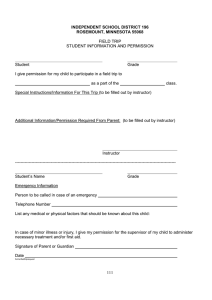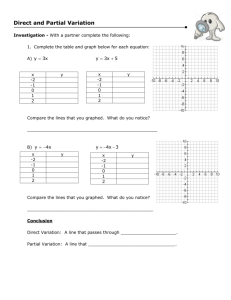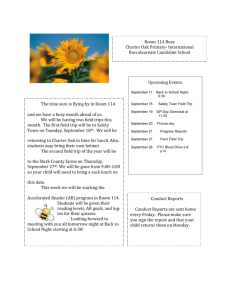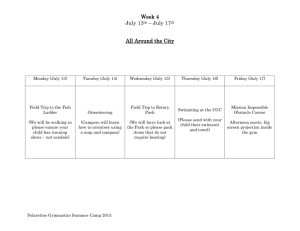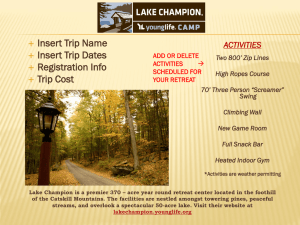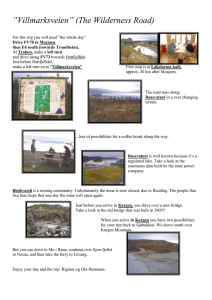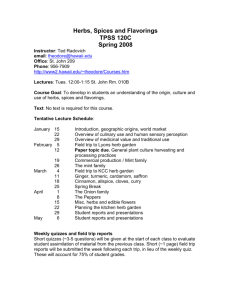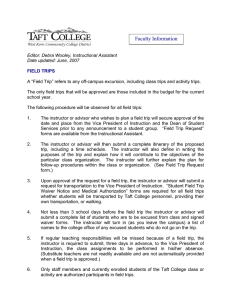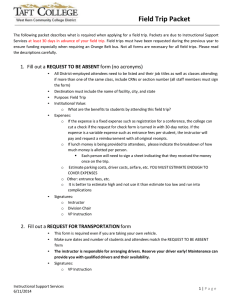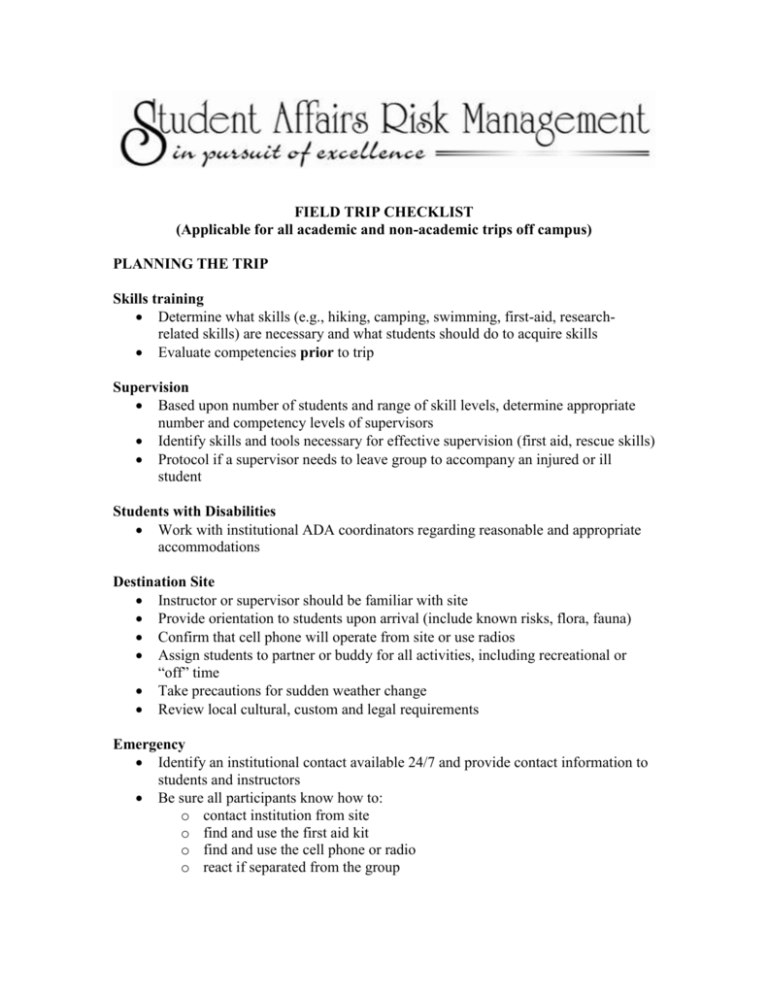
FIELD TRIP CHECKLIST
(Applicable for all academic and non-academic trips off campus)
PLANNING THE TRIP
Skills training
Determine what skills (e.g., hiking, camping, swimming, first-aid, researchrelated skills) are necessary and what students should do to acquire skills
Evaluate competencies prior to trip
Supervision
Based upon number of students and range of skill levels, determine appropriate
number and competency levels of supervisors
Identify skills and tools necessary for effective supervision (first aid, rescue skills)
Protocol if a supervisor needs to leave group to accompany an injured or ill
student
Students with Disabilities
Work with institutional ADA coordinators regarding reasonable and appropriate
accommodations
Destination Site
Instructor or supervisor should be familiar with site
Provide orientation to students upon arrival (include known risks, flora, fauna)
Confirm that cell phone will operate from site or use radios
Assign students to partner or buddy for all activities, including recreational or
“off” time
Take precautions for sudden weather change
Review local cultural, custom and legal requirements
Emergency
Identify an institutional contact available 24/7 and provide contact information to
students and instructors
Be sure all participants know how to:
o contact institution from site
o find and use the first aid kit
o find and use the cell phone or radio
o react if separated from the group
Alcohol
Address this directly and explicitly with students and supervisors
Prohibit impaired students from driving and from other dangerous activities
Conduct
Discuss applicability of institutional code of conduct while on trip (require
students to consent in writing if code coverage off campus is unclear)
Also discuss sexual harassment and hazing issues, if appropriate
Insurance
Encourage students to confirm personal health and accident coverage
Discuss limits of institutional coverage
PREPARING FOR THE TRIP
Release forms
Check with legal counsel for review, information about enforceability, and need
for signature of parent or guardian for minor students
Forms should describe dates and nature of activities, identify risks, indicate if
associated travel or lodging
Include release for medical treatment, emergency contact information
Keep one copy at institution and another copy with field instructor
Advise students to bring:
Appropriate clothing, gear
Medications
Identification and travel documents if appropriate
List of Participating Students
Prepare list of participating students (e.g., upon departure), keep one copy at
institution, one copy in field
May want to include pictures, especially if foreign or extended travel
Itinerary and Contact Information
Instructor should file with institution (e.g., risk management office)
Include all scheduled activities and names and emergency contact information for
all participants
Update as necessary
Travel
Consider insured drivers (commercial operators, pilots) and carriers when
possible (rather than student drivers)
Prohibit all impaired (e.g., intoxicated, over-tired) driving

